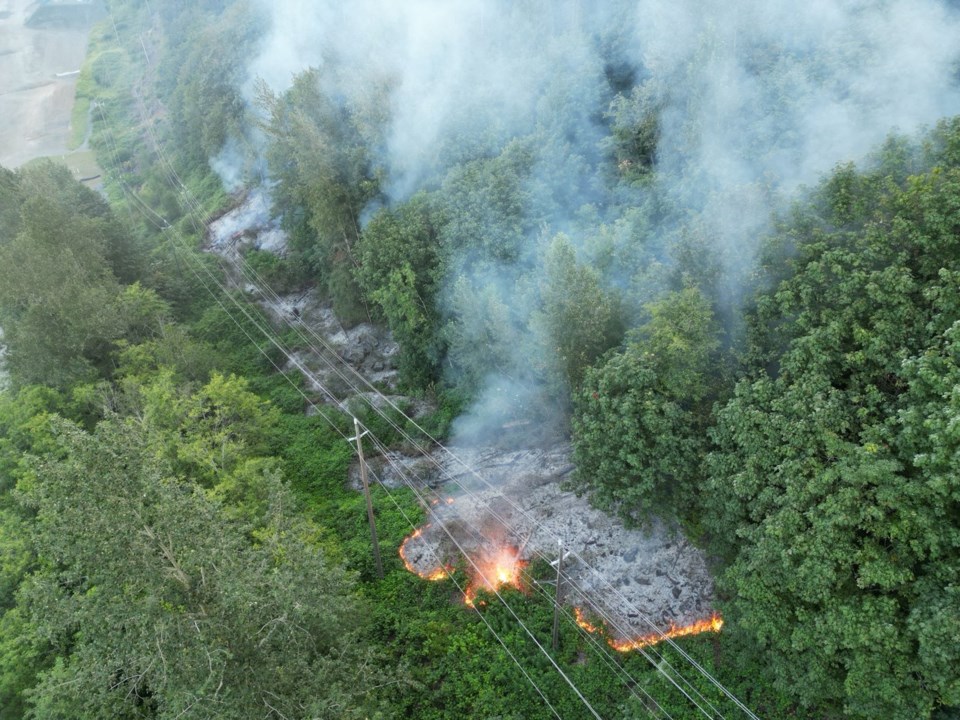Outside help is arriving to battle British Columbia wildfires that authorities expect to flare this week, with Australian and New Zealand firefighters on the way and crews and aircraft from other provinces already on the ground.
The BC Wildfire Service said on social media that the international personnel are expected to arrive on Friday, as hot, dry conditions persist in the province and the number of active wildfires hovers around 150.
It said the two 15-person incident management teams will then be briefed and given their first assignments.
An additional 30 people will arrive on Sunday to "fill specialized positions such as helicopter co-ordinators and fire behaviour analysts."
The wildfire service said a 20-person crew from Nova Scotia came in over the weekend to help fight fires, while two firefighting aircraft from Ontario have landed and will be stationed in Williams Lake.
"Supplementing our crews and contract crews allows us to ensure staff who have been working on fire response since May have the chance to rest," the BC Wildfire Service said.
"It also gives us more person-power during a continued period of hot and dry weather which makes fires more likely and elevates fire behaviour."
Emergency Management Minister Bowinn Ma said last week that B.C. was seeking out-of-province help from six unit crews representing about 180 specialized wildfire fighters
The help is arriving as thunderstorms roll into eastern B.C. by mid-week and winds pick up, which the wildfire service said had the potential to increase fire activity.
The hot and dry trend has already led to increased fire activity which will continue throughout the southern half of B.C., it said.
Environment Canada has maintained heat warnings for parts of the southern Interior from the Fraser Canyon up to the south Cariboo as well as the Okanagan Valley, the area along the Canada-U.S. border and the Kootenay Lake area.
The weather office said daytime highs in the 30s were expected through the week.
Despite extensive publicity about a provincewide campfire ban that came into effect on Friday, the Chilliwack Fire Department said in a statement that its crews attended several campfires over the weekend to put them out and issue fines.
Those who violate the ban face a ticket of $1,150 and may be required to pay an administrative penalty of up to $10,000.
The District of Wells lifted an evacuation order on Monday for an area around Cornish Lake and Nine and Eight Mile lakes that was issued because of the Cornish Mountain Fire on July 10.
The Cariboo Regional District has also lifted an evacuation alert for the nearby tourist town of Barkerville because of the same wildfire.
The district said that alert will lift on Tuesday afternoon.
The wildfire service said a one-hectare blaze was "highly visible" from the Trans-Canada Highway between Chilliwack and Hope. B.C.'s driver information service DriveBC said one eastbound lane of the highway was closed for a five-kilometre stretch.
The wildfire service said two initial attack crews and a helicopter from the provincial service were assisting the local fire department.
This report by The Canadian Press was first published July 15, 2024.
The Canadian Press




